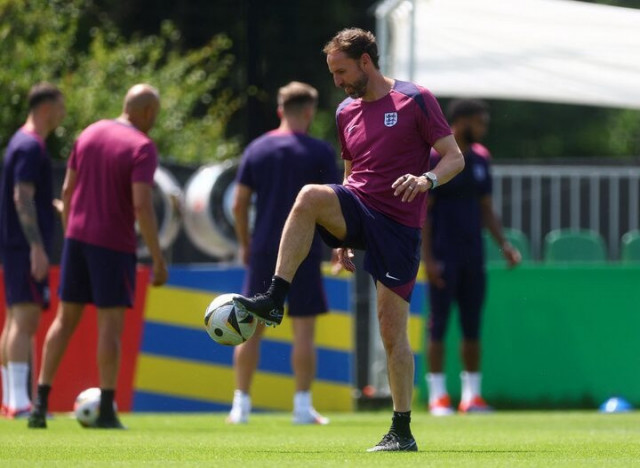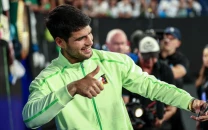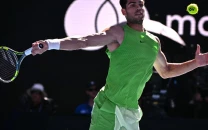Southgate defends late substitutions at Euro 2024
England manager Southgate backs late-game substitutions, citing satisfaction with team performance and individual form

England manager Gareth Southgate on Tuesday backed his decisions to introduce substitutes late in games during Euro 2024, arguing his reluctance to use his talented bench was usually because he was satisfied with the way his team were playing.
England have muddled through the tournament and Southgate has come under fire for seeming unwilling during abject performances to shake things up and bring on substitutes with enough time to make an impact.
In contrast to other big teams that have made changes much earlier, Southgate's switches have been mainly when England's backs were to the wall, most notably against Slovakia, when he brought on a livid Ivan Toney after 94 minutes as a last throw of the dice in stoppage time to try to win the game.
In the quarter-final against Switzerland, Southgate made a triple substitution moments after going 1-0 down when England were 12 minutes from elimination.
His earliest change was in the 0-0 draw against Slovenia, when he brought on midfielder Kobbie Mainoo at halftime, before introducing forward Cole Palmer with 19 minutes to go.
"There are different reasons for making changes, we were happy with the way the team were playing in a couple of those games, there was a game we made a substitution at halftime so we don't have a preconditioned way of operating," Southgate told a press conference.
"You're always looking at the physical freshness of the team the balance of the team how the team are performing individually, whether changes are actually going to improve what we're doing or not."
Read also: Euros final beckons for one of imperfect England or the Netherlands
Southgate said the confidence and mindset of the team had improved after a tricky start when their play was not free and fearless like in qualifying, due mainly to the pressure of being a pre-tournament favourite.
"The expectation weighed quite heavily and of course, the external noise was louder than it's ever been," he said.
"I felt we couldn't quite get ourselves in the right place and in the end what was impressive was that the players ground it out, they ground results out and found ways to win... I felt that shifted once we got into the knockout stage."
He said the players overcame difficulty and showed resilience, with a response he called brilliant, with a desire to make history by winning their first European Championship.
"You're now into that moment in the tournament where it's what's possible, what's achievable rather than what might go wrong," he said.
"So this is now the chance to make history which we've enjoyed doing."



















COMMENTS
Comments are moderated and generally will be posted if they are on-topic and not abusive.
For more information, please see our Comments FAQ